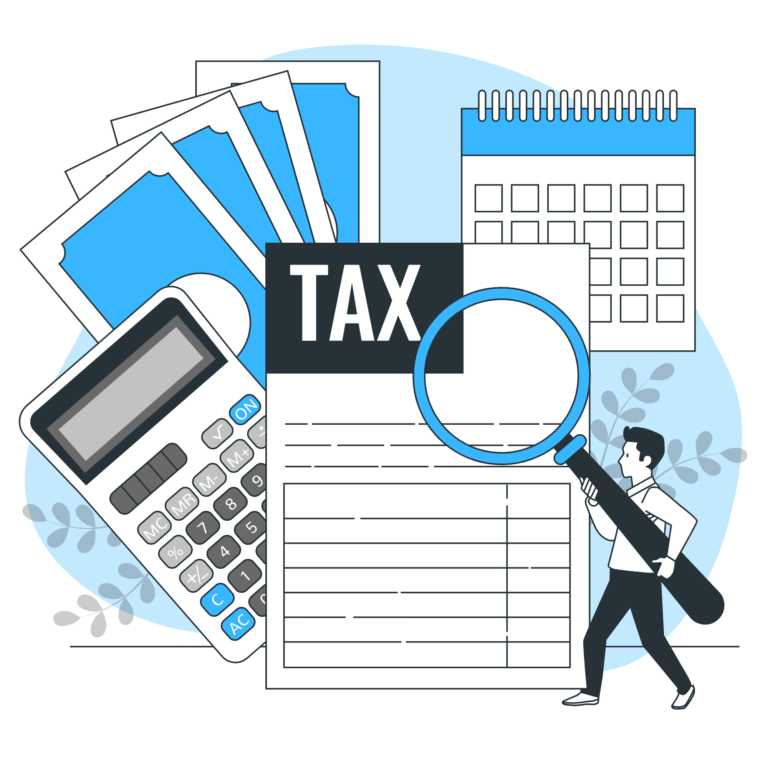Tax allowances in the Canton of Vaud
Every year, the tax return period is an important time for taxpayers in the canton of Vaud. It is important to know that a number of costs and expenses can be deducted in order to reduce the final tax amount.
In this guide, we'll explore the main tax deductions available in the canton of Vaud, whether for employment-related expenses, family expenses or personal investments.
Types of tax deductions in Switzerland
There are three types of tax deduction in Switzerland:
- 1. Organic deductions : They are directly linked to taxable income.
- 2. General deductions : They are linked to the taxpayer's lifestyle
- 3. Social deductions: They take into account the taxpayer's family situation

17 tax deductions in the canton of Vaud
1. Transport costs
Expenses incurred to get to work are deductible. For those who use a car, a deduction of 0.70 CHF per kilometer is granted for the first 15’000 km travelled, and 0.35 CHF per kilometer beyond that.
For public transport users, flat-rate amounts may be applied according to distance.
2. Meal expenses
If your employer does not pay for your meals during the working day, you can deduct up to 3,200 CHF per year. If a canteen is provided, or if your employer makes a partial contribution, the maximum deduction is reduced to CHF 1,600 per year.
3. Frais de résidence hors domicile
When you have to live away from home temporarily for work-related reasons, you are entitled to a deduction of up to CHF 6,400 per year if your meals are not provided, and up to CHF 4,800 per year if a canteen is available.
4. Health and accident insurance
Health and accident insurance premiums are deductible up to CHF 4,800 for a single person and CHF 9,600 for a couple. An additional deduction of CHF 1,300 per child or dependent is also possible.
If you receive subsidies for compulsory health insurance, these amounts must be deducted from insurance premiums before the deduction is calculated.
5. Tied personal pension (Pillar 3A)
Contributions to the 3rd pillar (3A) are one of the most advantageous tax deductions. In 2023, you can deduct up to 7,056 CHF if you are affiliated with a second pillar (occupational pension). If you are not affiliated, the deduction can reach up to 20% of your net income, with a cap of 35,280 CHF.
6. Education and advanced training costs
The costs of continuing education, including professional retraining, can be deducted up to an amount of 12,000 CHF per year, provided that you are at least 20 years old and the education serves a professional goal.
7. Building maintenance costs
Owners can deduct expenses incurred to maintain the value of their building.
For a property that is over 20 years old and occupied by the owner, the deduction is set at 30% of the rental value. Owners of newer properties or those that are rented out can also deduct fixed percentages or actual expenses if they are higher.
8. Donations to charitable organizations
Donations to charitable institutions (foundations, associations) can be deducted up to 20% of your net income.
9. Medical and disability-related expenses
Les frais de santé qui ne sont pas remboursés par l’assurance-maladie peuvent être déduits s’ils excèdent 5% de votre revenu intermédiaire. Pour les personnes en situation de handicap, les frais effectifs sont entièrement déductibles.
10. Deductions for childcare costs
If you have children under the age of 14, you can deduct childcare expenses up to 13,000 CHF per child. This includes costs for nurseries, daycare centers, or other childcare services.
11. Social deductions
Enfin, des déductions sont accordées en fonction de la situation familiale et sociale. Une déduction pour les familles à revenu modeste existe (jusqu’à 16’500 CHF de base, avec des montants additionnels pour le conjoint et les enfants), ainsi qu’une déduction pour chaque enfant ou personne à charge.
12. Other business expenses
Dans le canton de Vaud, il y a d’autres frais vus comme nécessaires, que vous pourriez déduire à hauteur de 3% de votre salaire net avec un montant maximum et minimum de 4’000 CHF and 2’000 CHF respectivement.
In the canton of Vaud, there are other expenses considered necessary, which you can deduct up to 3% of your net salary, with a maximum of 4,000 CHF and a minimum of 2,000 CHF.
- Purchase of work-appropriate clothing
- Purchasing equipment for your professional activity
- Any other similar expenses
13. Fees for secondary activities
If you engage in a secondary activity, independent of your main job, you can deduct 20% of your net income generated from this activity, with a minimum of 800 CHF and a maximum of 2,400 CHF.
14. Dual activity of spouses
Couples where both spouses work can benefit from an additional deduction of 1,700 CHF, provided that the lower income, after deducting expenses and contributions, reaches this amount.
14. Interest on savings capital
Interest on savings accounts can be deducted up to 1,600 CHF for an individual, 3,200 CHF for a couple, and an additional 300 CHF per dependent child.
15. Securities administration fees
If you have financial investments, you can deduct 1.5 ‰ of the value of securities and other capital investments declared under code 410.
15. Lottery bets
Taxable winnings from lotteries can benefit from a deduction of 5% of the winnings, with a cap set at 5,000 CHF per taxable gain.
16. Housing allowance
Taxpayers can benefit from a deduction for expenses relating to their main home, up to a maximum of 6,600 CHF per year.
17. Family deduction
Families can benefit from an additional deduction. A couple can deduct up to 1,300 CHF, while a single-parent family can deduct up to 2,800 CHF. In addition, an extra deduction of 1,000 CHF is granted for each dependent child.
Tax Advice
Tax deductions in the canton of Vaud offer numerous opportunities to reduce your tax bill. Whether it involves professional expenses, family-related charges, or donations to institutions, each deduction plays a crucial role in lowering your taxes.
By understanding these deductions and applying them correctly, taxpayers can optimize their tax situation and better manage their family budget.




